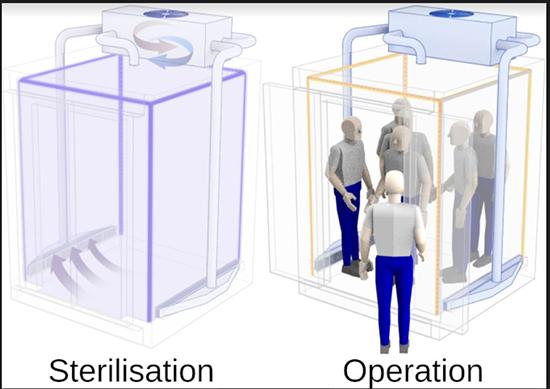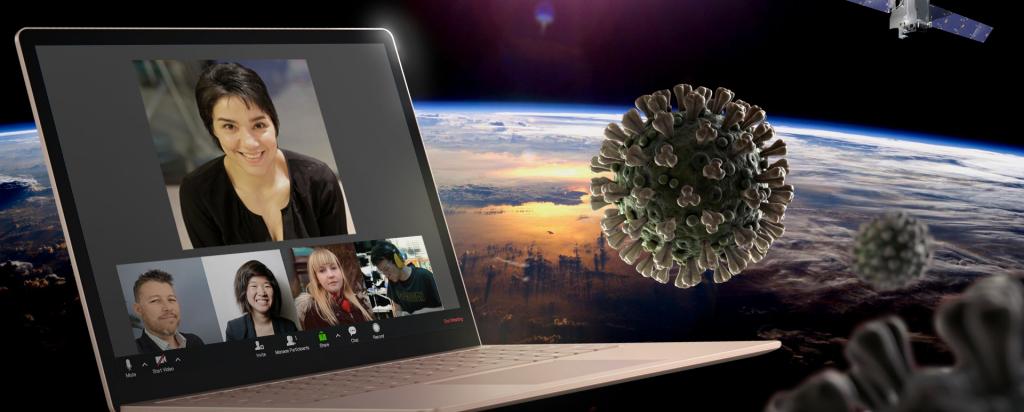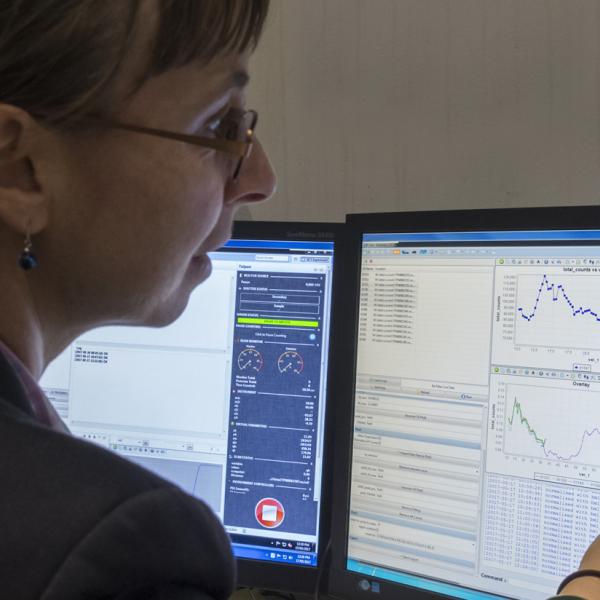

Published on the 5th August 2020 by ANSTO Staff
A team from ANSTO and the nandin innovation hub has won the Best Use of Technology category in the global SpaceApps COVID-19 Challenge virtual hackathon using open data from the space agencies to develop solutions to issues related to the COVID-19 pandemic.
In taking the technology award, the team beat more than 1400 teams with an air monitoring and purification system designed using NASA resources—a solution that exemplified the most innovative use of technology.
They learned of the win in a live broadcast from NASA in the United States very late last night.
All winners are featured on the Space Apps website and will receive an invitation to present their projects to NASA and other space organisation personnel. When travel is deemed safe, the winners will also be invited to visit a NASA site with the GO Team to view a spacecraft launch.
Speaking on behalf of the team, Safavi-Naeini said they were thrilled with the success, especially as it involved competing against some of the most distinguished universities and scientific institutions in the world.
In taking up the challenge to develop a system to monitor and purify indoor air, the team developed the Elavo solution to prevent COVID-19 infection in buildings or vehicles, using NASA technology for the inactivation of pathogens in small, shared spaces.
The team, comprising team captain Mitra Safavi-Naeini (ANSTO), Jay Flack (nandin innovation hub), Amy MacIntosh (ANSTO – Graduate Institute), ShanShan Wang (nandin innovation hub) and Nathan Burke (ANSTO), competed on the hackathon over 48 hours in late May.
Elavo combines an air purification technology with a UVC light sterilisation process for the decontamination of surfaces.
“Our team used a data-driven approach to identify patterns in spectral datasets shared by the space agencies which correlated with the spread of COVD19 in densely populated cities,” said Safavi-Naeini.
Using NASA satellite data of New York to identify trends of one major air pollutant, they highlighted the correlation between public transport connectivity (train and subway stations/underground lines), air quality and COVID-19 case distribution.
The international event, which was held over 48 hours is hosted by the European Space Agency (ESA), NASA, the Japanese Aerospace Exploration Agency (JAXA) and the National Centre for Space Studies (CNES), attracted over 15000 participants in more than 2000 teams.


